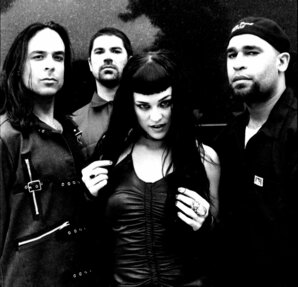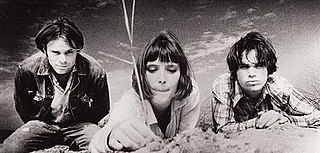
A payphone is typically a coin-operated public telephone, often located in a telephone booth or in high-traffic outdoor areas, with prepayment by inserting money or by billing a credit or debit card, or a telephone card. Prepaid calling cards also facilitate establishing a call by first calling the provided toll-free telephone number, entering the card account number and PIN, then the desired telephone number. An equipment usage fee may be charged as additional units, minutes or tariff fee to the collect/third-party, debit, credit, telephone or prepaid calling card when used at payphones. By agreement with the landlord, either the phone company pays rent for the location and keeps the revenue, or the landlord pays rent for the phone and shares the revenue.
Mojave or Mohave most often refers to:

Mojave National Preserve is a United States National Preserve located in the Mojave Desert of San Bernardino County, California, USA, between Interstate 15 and Interstate 40. The preserve was established October 31, 1994, with the passage of the California Desert Protection Act by the US Congress, which also established Joshua Tree National Park and Death Valley National Park as National Parks. Previously, some lands contained within the Preserve were the East Mojave National Scenic Area, under the jurisdiction of the Bureau of Land Management. At 1,542,776 acres (6,243 km2), within the contiguous United States it is the third largest unit of the National Park System and the first largest National Preserve. The preserve was created within the Pacific West Region of the National Park Service and remains within that jurisdiction today.

A telephone booth, telephone kiosk, telephone call box, telephone box or public call box is a tiny structure furnished with a payphone and designed for a telephone user's convenience; usually the user steps into the booth and closes the booth door while using the payphone inside.

La Cabina is a 1972 television film directed by Spanish director Antonio Mercero, and written by himself and José Luis Garci, starring José Luis López Vázquez. It first aired on 13 December 1972 on Televisión Española. In the 35-minute film, a man becomes trapped in a telephone booth, while passersby seem unable to help him.

Phone Booth is a 2002 American psychological thriller film directed by Joel Schumacher, produced by David Zucker and Gil Netter, written by Larry Cohen and starring Colin Farrell, Forest Whitaker, Katie Holmes, Radha Mitchell, and Kiefer Sutherland. In the film, a malevolent hidden sniper calls a phone booth, and when a young publicist inside answers the phone, he quickly finds his life is at risk. The film received generally positive reviews from critics and was a box office hit, grossing $97 million worldwide against a production budget of $13 million.
The Mojave phone booth was a lone telephone booth in what is now the Mojave National Preserve in California. It attracted online attention in 1997 for its unusual location – it was located at the intersection of two dirt roads in a remote part of the Mojave Desert, 12 miles (19 km) from the nearest paved road and miles from any buildings.
Primitive Radio Gods is an American alternative rock band from Southern California. Current members consist of frontman Chris O'Connor, who performs vocals and bass; percussionist Tim Lauterio; and Luke McAuliffe, who contributes various additional instrumentation as well as much of the art that has appeared on the band's albums and website. Former member Jeff Sparks wrote, sang, and played bass before leaving the band to pursue other music projects in 2001.

Snake River Conspiracy (SRC) is an American industrial rock band. It was formed in 1996 in the San Francisco Bay Area by producers Eric Valentine and Jason Slater. The band's vocalist, Tobey Torres, was recruited in 1998.

Mojave 3 were a British rock band consisting of former Slowdive members Neil Halstead, Rachel Goswell and Ian McCutcheon (drums) alongside keyboardist Alan Forrester and former Chapterhouse guitarist Simon Rowe.

Pleased to Meet You is the ninth studio album by English rock band James. Less than a year after the release of Millionaires (1999), the band were playing new material live. Recording was split between Ridge Farm, Whitfield St., House in the Woods studios; producer credit was split between Brian Eno, guitarist/violinist Saul Davies, KK and the band. "Getting Away with It " was released as a single in late June, followed a week later by Pleased to Meet You on 2 July through Mercury Records.

Whiplash is the seventh studio album by English rock band James. It was released on 24 February 1997, through Fontana Records. Following the release of the band's experimental sixth studio album Wah Wah (1994), they began working on a follow-up in 1995 at drummer David Baynton-Power's home studio. Over the course of 1995 and 1996, James recorded at several studios – Westside, The Windings, Cafe Mullet, Real World, RAK, and Foel – with producers Stephen Hague, Brian Eno, and Baynton-Power. Described as electronic and folk rock release, the album mixed in elements of the band's previous two studio albums.

Millionaires is the eighth studio album by British alternative rock band James. During the Whiplash release cycle, guitarist Adrian Oxaal replaced founding member Larry Gott, and guitarist Michael Kulas joined the band. Touring to promote the release was cut-short when Booth injured his neck. With the release of The Best Of in early 1998, the band began recording their next album in May 1998. The sessions continued into February 1999 at a variety of studios: Ridge Farm, Hook End, Townhouse and Metropolis. While Brian Eno produced most of the record, the producer credit was also given to guitarist/violinist Saul Davies, keyboardist Mark Hunter, Steve Osborne, drummer David Baynton-Power and Faithless. Millionaires is an indie rock and pop release that drew comparison to Lou Reed and New Radicals.

Mojave Phone Booth is an independently produced 2006 film directed by John Putch. The film is based on a real phone booth in the Mojave Desert that once accepted incoming calls, but has since been removed.

"Standing Outside a Broken Phone Booth with Money in My Hand" is a song by American alternative rock group Primitive Radio Gods. Their debut single, it was released from the soundtrack to the 1996 black comedy film The Cable Guy and was also included on the band's first album, Rocket. Its chorus consists of a sample from the 1964 B.B. King song "How Blue Can You Get", and the enigmatic lyrics of the song describe a troubling relationship in which two people cannot connect on an emotional level. The song was released in the United Kingdom on March 18, 1996, and was serviced to US radio on June 11, 1996.
A phone booth or telephone booth is a small structure furnished with a payphone and designed for a telephone user's convenience.
Tobey Torres-Doran is an American singer and musician. She is best known as the frontwoman of the industrial rock band Snake River Conspiracy (SRC) across three stints, from 1998 to 2004, in 2006, and again since 2022. Outside of Snake River Conspiracy, she also fronts the electronic rock band Mojave Phone Booth, which she founded with her husband/SRC guitarist Mitchell J. Doran.

Bill & Ted's Excellent Adventure is a 1989 American science fiction comedy film directed by Stephen Herek and written by Chris Matheson and Ed Solomon. The first installment of the Bill & Ted franchise, it stars Keanu Reeves, Alex Winter and George Carlin. It follows Bill (Winter) and Ted (Reeves), who travel through time to assemble historical figures for their high school history presentation.

FaceTime is a proprietary videotelephony product developed by Apple Inc. FaceTime is available on supported iOS mobile devices running iOS 4 and later and Mac computers that run Mac OS X 10.6.6 and later. FaceTime supports any iOS device with a forward-facing camera and any Mac computer equipped with a FaceTime Camera. FaceTime Audio, an audio-only version, is available on any iOS device that supports iOS 7 or newer, and any Mac with a forward-facing camera running OS X 10.9.2 and later.













